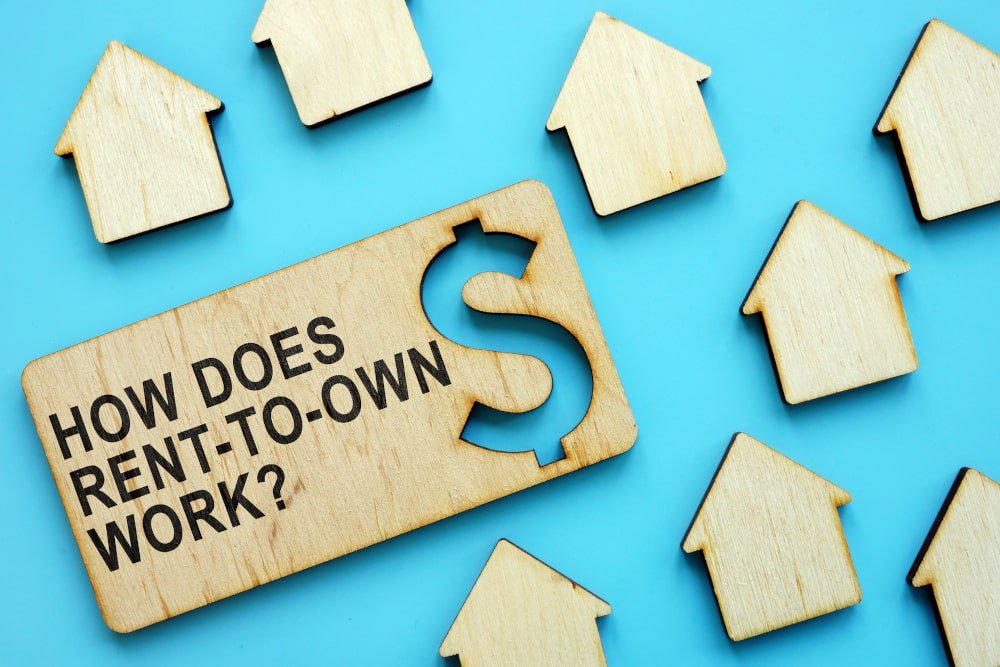Rent-to-Own Programs

Homeownership remains the dream of many Canadians, but the process of acquiring a home can come with many challenges , especially for individuals dealing with credit hurdles or struggling to amass a substantial down payment. In Canada, rent-to-own programs offer a potential solution, presenting a unique pathway to homeownership by blending elements of renting and buying. This innovative strategy allows current tenants to lease a property with an option to purchase it at a predetermined price after a specified period.
An In-Depth Look at Rent-to-Own Homes
Rent-to-own agreements typically consist of a special type of lease between a tenant and their landlord, granting the tenant the exclusive right to potentially purchase the property at a fixed price in the future. The lease typically spans one to three years, during which the tenant pays rent—often slightly higher than the prevailing market rate. A portion of this increased rent may be credited towards the property's future down payment or purchase price.
Here are some of the most common elements of a rent-to-own contract:
- Agreement: The tenant and landlord agree on terms that include a lease period (usually 1-3 years), monthly rent amount, and a purchase price for the property at the end of the lease term.
- Initial Payment: The tenant might be required to pay an upfront fee or a non-refundable option fee (often a percentage of the purchase price) to secure the option to buy the property later.
- Rent Payments: During the lease period, the tenant pays rent to the landlord, often at a slightly higher rate than the market rent. A portion of the excess rent might be credited toward the future down payment or purchase price.
- Option to Purchase : The tenant has the option (but not the obligation) to buy the property at the agreed-upon price once the lease term ends. If the tenant decides to purchase, the upfront fee and any additional amount allocated towards the purchase will typically be considered part of the down payment.
- Decision at Lease End: At the end of the lease term, the tenant can choose to buy the property or walk away from the deal. If the tenant decides not to purchase, any additional amount paid above the standard rent may not be refundable.
Pros and Cons of Rent-to-Own Agreements: Is It the Right Choice for You?
Before deciding whether or not to pursue a rent-to-own agreement, it is important to familiarize yourself with the potential benefits and drawbacks of this unique arrangement. Here are a few of the most common pros and cons associated with rent-to-own agreements:
Pros:
- Path to Ownership: Rent-to-own arrangements provide a chance for tenants to reside in their desired property while working on improving their financial situation to qualify for a mortgage by the end of the lease term.
- Flexible Financing: With potentially lower initial costs than a traditional mortgage, tenants can save for the down payment and strengthen their financial standing over the lease period.
- Price Lock: The agreed-upon purchase price remains fixed throughout the lease, safeguarding tenants from market price fluctuations.
Cons:
- Higher Costs: Monthly rent in rent-to-own agreements often surpasses typical market rates, potentially straining the tenant's budget.
- Non-Refundable Fees: The upfront option fee securing the purchase right might not be refundable if the tenant decides not to buy the property.
- Financial Risks : If tenants fail to secure financing or face financial challenges by the end of the lease, they may lose the accumulated credits and forfeit the option to buy.
Steps to Successfully Navigate a Rent-to-Own Real Estate Deal
Step 1: Understand the Agreement. Prioritize a thorough review of your contract, seeking legal advice if needed, to ensure you absolutely understand all the terms and obligations before signing.
Step 2: Financial Preparation. Assess your current finances and develop a plan to improve your standing if needed. Make sure to consider whether you will need to improve your credit score or save for a larger down payment to secure a mortgage by the lease term's end.
Step 3: Property Assessment. Conduct a professional inspection to evaluate the property's condition and ensure alignment with the agreed terms.
Step 4: Building Equity. Consistently pay rent on time and contribute additional funds, if possible, to build equity toward the future down payment.
Step 5: Securing Mortgage Approval. Work to meet your lender’s requirements and secure mortgage approval by the end of your lease term to exercise the purchase option.
Rent-to-own programs offer an alternative route to homeownership in Canada, but they require careful consideration, financial planning, and a comprehensive understanding of the terms involved. For tenants and landlords, a well-structured and transparent agreement can make rent-to-own arrangements a beneficial and rewarding pathway toward achieving homeownership goals.
To learn more about rent-to-own properties and explore other mortgage options available to you (even with a lower down payment or credit score), contact Clover Mortgage today to book a free consultation with one of our expert brokers!
FAQ
Does Canada have a rent-to-own program?
Yes, Canada does have rent-to-own programs available for individuals interested in purchasing a property through this alternative method. Rent-to-own agreements allow tenants to rent a property for a specific period with the option to buy it at a predetermined price at the end of the lease term.
These programs vary in structure and terms based on agreements between landlords and tenants. Rent-to-own arrangements typically involve paying a higher-than-market rent, with a portion of the extra payment allocated towards a down payment on the property.
What is a rent-to-own strategy?
A rent-to-own strategy is a housing arrangement that combines aspects of renting and homeownership. It allows a tenant to lease a property for a specific period, with the option to purchase the property at a predetermined price at the end of the lease term. These agreements outline specific terms, including the purchase price, the duration of the lease, the percentage of rent credited towards the purchase, and any additional fees, such as an upfront non-refundable option fee securing the right to buy the property. Zero down rent to own homes in Ontario can be found through rent to own listings.
Who is eligible for rent subsidy in Canada?
In Canada, various rent subsidy programs exist at federal, provincial, and municipal levels to assist individuals and families facing challenges in affording housing. Eligibility for rent subsidies can depend on several factors, including income level, family size, location, and specific program criteria. Here are some common rent subsidy programs and their eligibility criteria:
Canada Housing Benefit (CHB) : The Canada Housing Benefit is a federal program designed to provide financial assistance directly to individuals and families in housing need. Eligibility criteria may vary by province or territory, but generally, recipients must have a household income below a certain threshold and may need to meet other criteria set by the specific jurisdiction administering the program.
Provincial/Territorial Rent Subsidies: Each province or territory in Canada may have its own rent subsidy or housing assistance programs tailored to local needs. Eligibility criteria can differ widely, but they often consider factors such as income, family composition, housing expenses, and residency status.
Low-Income Housing Programs: Some provinces or territories offer affordable housing units or programs specifically targeting low-income individuals or families. Eligibility is typically based on income thresholds and other criteria, and there may be waiting lists due to high demand for these housing units.
Senior or Disability-Specific Housing Subsidies: Specialized rent subsidy programs may exist for seniors, individuals with disabilities, or those facing unique challenges. Eligibility criteria often consider age, disability status, income, and specific housing needs.
Municipal Housing Programs: Municipalities may have their own rent subsidy or affordable housing initiatives to support residents in need. These programs can vary widely in eligibility criteria and availability based on local housing markets and resources.





